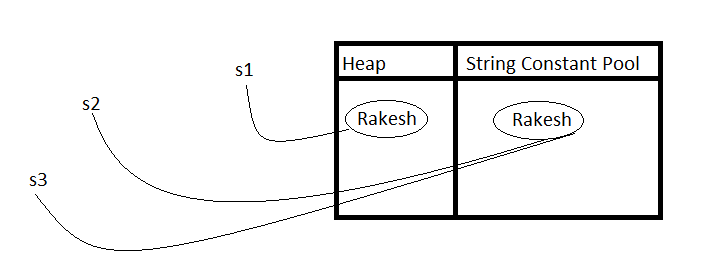Prefer String.equals over this==object
I want to add my 2 cents on using == with interned strings.
The first thing String.equals does is this==object. See source code on OpenJDK.
public boolean equals(Object anObject) {
if (this == anObject) {
return true;
}
…
So although there is some miniscule performance gain ( you are not calling a method), from the maintainer point of view using == is a nightmare, because some interned strings have a tendency to become non-interned.
So I suggest not to rely on special case of == for interned strings, but always use equals as Gosling intended.
EDIT: interned becoming non-interned:
V1.0
public class MyClass
{
private String reference_val;
...
private boolean hasReferenceVal ( final String[] strings )
{
for ( String s : strings )
{
if ( s == reference_val )
{
return true;
}
}
return false;
}
private void makeCall ( )
{
final String[] interned_strings = { ... init with interned values ... };
if ( hasReference( interned_strings ) )
{
...
}
}
}
In version 2.0 maintainer decided to make hasReferenceVal public, without going into much detail that it expects an array of interned strings.
V2.0
public class MyClass
{
private String reference_val;
...
public boolean hasReferenceVal ( final String[] strings )
{
for ( String s : strings )
{
if ( s == reference_val )
{
return true;
}
}
return false;
}
private void makeCall ( )
{
final String[] interned_strings = { ... init with interned values ... };
if ( hasReference( interned_strings ) )
{
...
}
}
}
Now you have a bug, that may be very hard to find, because in majority of cases array contains literal values, and sometimes a non-literal string is used. If equals were used instead of == then hasReferenceVal would have still continue to work. Once again, performance gain is miniscule, but maintenance cost is high.


internas public method. Shouldn't we haveinternas private method, so that nobody could have access to it. Or is there any purpose of this method? – ReefString s3 = "Rakesh".intern();as string literals automatically got interned. – Si